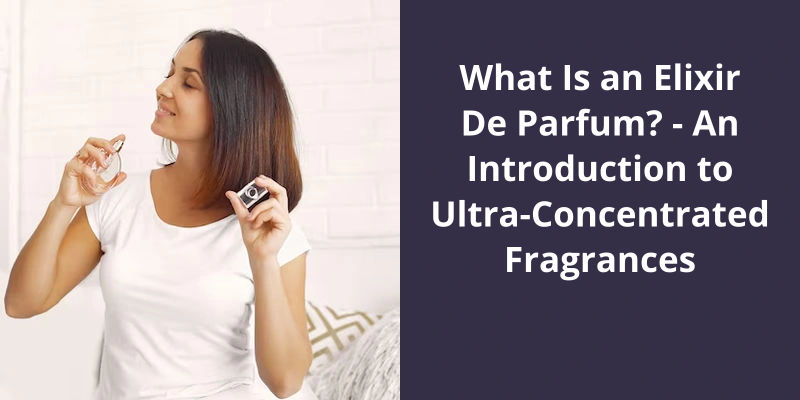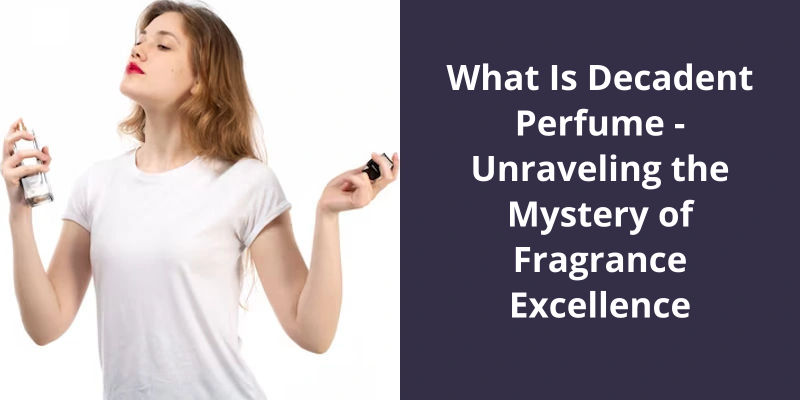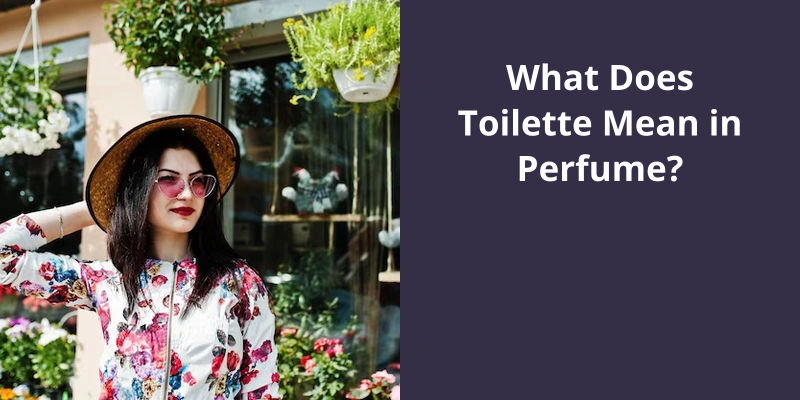Muslim cologne is usually referred to as “Attar” or “Ittar.” It has a long history in Islamic culture and is basically a natural perfume oil derived from botanical sources. The origin of Attar dates back thousands of years and it is typically alcohol-free, making it permissible for use in Islam. It varies in fragrance, from floral to woody, and is highly concentrated, providing long-lasting aroma. The making process involves distilling various flowers, herbs, and spices, and it’s known for being more expensive due to its quality and purity.

Is It Halal to Make Perfume?
This process ensures that the alcohol used in perfume isn’t the same alcohol that’s prohibited in Islam. Perfumers alcohol is made from specific ingredients and undergoes purification procedures, which makes it permissible for use in perfume.
Furthermore, perfume plays an essential role in Islamic tradition and culture. It’s believed that the Prophet Muhammad (peace be upon him) used to wear perfume and advised his followers to do the same. Therefore, it isn’t only permissible but also encouraged to wear perfume under Islamic beliefs.
On the other hand, some perfumes may contain animal-derived ingredients such as musk or ambergris. The use of these ingredients in perfume has also been debated among Islamic scholars, with some arguing that it’s haram due to the method of extraction. However, the majority of scholars agree that the use of animal-derived ingredients in perfume is permissible as long as the animal was not killed for that purpose.
However, it’s always essential to do research and make informed choices when purchasing perfumes to ensure that they align with your beliefs and values.
The Role of Perfume in Islamic History and Tradition, Including the Different Types Commonly Used in Islamic Culture
Perfume has been an important part of Islamic history and tradition and is commonly used in Islamic culture. There are different types of perfumes used, including floral scents made from roses, jasmine, and lavender, as well as musky scents made from amber and musk. It’s often used in religious rituals and events, as well as personal hygiene. The Prophet Muhammad is known to have used perfume and urged his followers to use it as well. In Islamic culture, perfume is seen as a symbol of cleanliness and purity, and is often gifted to others as a sign of respect and honor.
Attar, however, has a deeper significance beyond just the physical cleanliness of the body. It’s often seen as a symbol of spiritual purity and a way to connect with the divine during prayer. In this sense, the use of attar is deeply ingrained in Muslim culture and rituals.
Why Attar Is Used by Muslims?
The tradition of using attar dates back to the time of the Prophet Muhammad (peace be upon him) and his companions, who’d use natural fragrances to perfume themselves. They believed that the use of attar not only cleansed the body, but also the soul, and helped to create a peaceful and calming environment during prayer.
In addition to it’s spiritual benefits, attar is also used for it’s medicinal properties. For example, rose attar is used to relieve stress and anxiety, while sandalwood attar is used for it’s antiseptic and anti-inflammatory properties.
Attar is also used to celebrate special occasions in Muslim communities. During weddings and other celebrations, fragrant perfumes are an important part of the festivities. In some cultures, it’s customary to sprinkle attar on the bride and groom during their wedding ceremony as a symbol of their new life together.
Attar is also used for it’s cultural significance. Some of the most famous attars come from the Middle East, such as Arabian oud and Persian rose.
Finally, attar has become an important part of the global fragrance industry.
The use of fragrance is deeply embedded in many cultures. While it may seem like a harmless and pleasant way to enhance one’s appearance and allure, for Muslims, it’s religious implications. In fact, the topic of perfume and cologne can be quite controversial, with differing views and interpretations. Let’s take a closer look at the question of whether Muslims can wear cologne.
Can Muslims Wear Cologne?
However, the issue of whether or not Muslims can wear cologne is a bit different. While some may argue that wearing cologne falls under the same category as wearing perfume, others may argue that cologne and perfume are two different things. Cologne is typically designed for men and has a much stronger scent than perfume, which is typically designed for women.
They claim that it goes against the idea of modesty, which is highly valued in Islam. According to their argument, if men wear cologne in public, they may attract unwanted attention from women. In Islam, modesty is a virtue that both men and women should practice.
The use of perfume is deeply ingrained in the Arab culture and has been part of their tradition for centuries. Beyond just personal hygiene, it’s often associated with religious practices and is seen as a way to show devotion and respect to Allah. In fact, the Prophet Muhammad (Peace be Upon Him) was known for his love of fragrances, and today, many Arabs continue to follow in his footsteps by using perfume to keep themselves smelling fresh and clean at all times. But there’s much more to the story than simply smelling good, as we’ll explore in the next section.
Why Do Arabs Wear Perfume?
This is why it’s common for Arabs and Muslims to wear perfume. It’s also a way to honor and show respect to others, as it’s believed that a pleasant scent has a positive effect on the people around you. In Arab culture, perfume is seen as a luxury item and is often given as a gift or used to mark special occasions. Many Arab households also burn incense or scented oils to create a pleasing atmosphere.
Besides cultural and religious reasons, perfume is also a way to escape the harsh heat of the desert. In the Middle East, temperatures can reach up to 50 degrees Celsius. In such extreme weather conditions, the use of fragrances can help counteract the unpleasant odors that arise from sweating. This makes sense why perfume is so popular in the Arab region and has led to the development of many famous perfume brands originating from the region.
The use of perfume isn’t just limited to the Arab world. Islamic culture and fragrances have a significant influence on people from all over the world. Many people in the West have adopted the use of oud oil and attar – a natural perfume made from essential oils – in their daily routine.
It’s a way to show respect and hospitality, as well as to combat the effects of extreme heat. It’s a practice that’s been passed down through generations of Muslims, and has spread to other parts of the world.
The History of Perfume in Arab Culture and How It Has Evolved Over Time
- The use of perfume in Arab culture can be traced back to ancient times.
- Arab traders were known to bring perfumes from India and Southeast Asia to the Middle East.
- During the Islamic Golden Age, perfume-making became a respected art form.
- Many famous perfumes, such as Arabian Oud and Yasmine, originated in the Arab world.
- The use of natural ingredients, such as musk, amber, and rose, is still common in Arab perfumery.
- In recent years, Western perfume brands have gained popularity in the Arab world, but traditional Arab perfumes remain an important part of the culture.
Source: Persian and Arab young men
Now that the question of whether perfume breaks the fast in Islam has been addressed and settled, let’s delve deeper into the significance of fragrance in Islamic tradition and how it’s used in various aspects of worship and everyday life.
Does Perfume Break Fast in Islam?
In fact, perfume has been used in Islamic culture for centuries to enhance personal hygiene and as a sign of cleanliness. It’s also believed to have a spiritual and therapeutic benefit. However, there are certain restrictions on the use of perfume during prayers and when visiting the mosque.
The Prophet Muhammad (peace be upon him) encouraged the use of perfume and considered it a part of personal grooming for both men and women. He said that wearing perfume is a sunnah (practice) and that Muslims should take care to smell good. This has been documented in several hadiths and is considered a good deed in Islam.
Additionally, if a person is in a state of impurity (such as after using the toilet) they should avoid wearing perfume until they’ve performed ablution (washing).
However, Muslims should follow certain guidelines and restrictions to ensure that they don’t cause discomfort or distraction to others. By doing so, they can maintain good personal hygiene and follow the sunnah of the Prophet Muhammad (peace be upon him).
The Spiritual and Therapeutic Benefits of Perfume in Islamic Culture
Perfume has significant spiritual and therapeutic benefits in Islamic culture. It’s believed to cleanse the soul, promote mental well-being and create a connection with the divine. Perfume plays an important role in religious practices such as prayer and pilgrimage, where it’s aroma is associated with purity and holiness. Additionally, scent therapy has been used for centuries in Islamic medicine to treat physical and mental ailments. The use of perfume in Islamic culture is deeply rooted in tradition and spirituality.
Arabic perfumery has a rich history that spans centuries and it’s fragrances are highly valued around the world. Despite the various materials that are used to create these scents, one question that often arises is what do Arabs use for perfume? The answer is much more complex than a simple list of ingredients.
What Do Arabs Use for Perfume?
Perfume has a significant cultural significance in the Arab world, where it’s considered to be an integral part of personal hygiene and hospitality. Perfume is used for various occasions, from weddings and religious ceremonies to everyday use. The Arabs take pride in their perfumes, as their heritage is deeply rooted in this luxury product.
One type of perfume that’s popular in the Arab world is the oud-based perfume, which is derived from agarwood, a resinous tree that’s native to Southeast Asia. Perfume makers in the Arab world also use various spices such as cardamom, saffron, and clove to create perfumes with a spicy twist.
Another popular ingredient in Arabic perfumery is ambergris, which is a waxy substance that’s produced in the digestive system of sperm whales. Despite the rarity and expense of this ingredient, it’s widely used in Arab perfumery as a fixative, helping to stabilize the fragrances scent and ensure that it lasts longer. Musk is also a popular animal-derived ingredient used in Arab perfumery, which is obtained from the gland of musk deer.
Herbs and flowers are also widely used in Arabic perfumes, with rose, jasmine, and lavender being some of the most commonly used flowers. These floral scents are popular with Arab women, who often use them to create a unique and personalized fragrance. Sandalwood, cedar, and frankincense are other ingredients that are widely used in Arabic perfumery, as they’re known for their woody and resinous scents.
The art of Arabic perfumery has been refined over the centuries, with many ancient texts and manuscripts detailing the various methods and practices involved in creating the perfect perfume.
The History and Evolution of Arabic Perfumery: How Did Perfume-Making Begin in the Arab World, and How Has It Evolved Over Time?
- The use of perfumes in the Arab world dates back to ancient times, with evidence of perfumes being used by the Pharaohs in Egypt.
- Arabic perfumery evolved with trade and became a highly respected art form in the Islamic Golden Age.
- During this time, perfumes were made using natural ingredients such as flowers and herbs, and were often used for medicinal purposes.
- The Arab world also developed new methods of distillation and extraction, which allowed for the creation of new scents and perfumes.
- The Ottoman Empire played a significant role in the history and evolution of Arabic perfumery, with Istanbul becoming a hub for perfume trade and production.
- In modern times, Arabic perfumery has continued to evolve, with the introduction of Western-inspired fragrances and synthetic ingredients.
- Despite this, traditional perfumery techniques and natural ingredients remain an important part of the Arab world’s perfume-making heritage.
Conclusion
This luxurious perfume is commonly used by Muslim men and women as a way to enhance their scent and provide a pleasing aroma. From the ancient teachings of Ibn Sina to modern-day usage, attar remains a beloved and cherished essence within the Muslim community and beyond.





